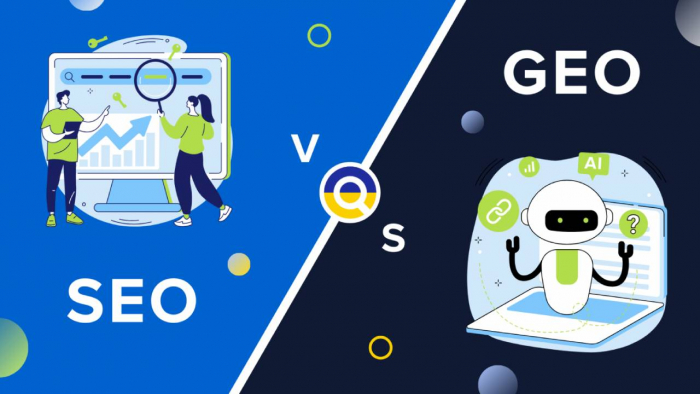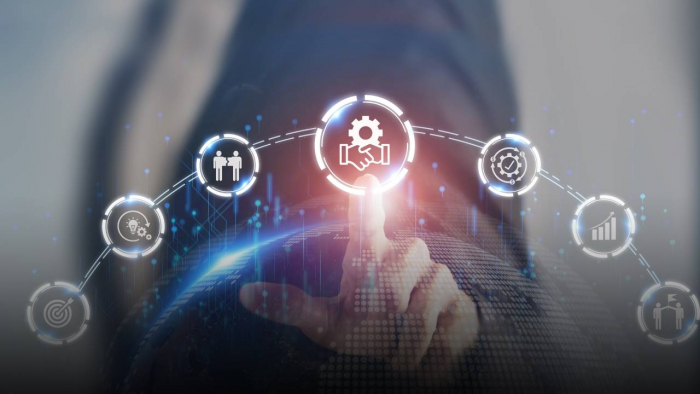The way people learn now matches the extent of change that has occurred in modern workplaces because of hybrid schedules, digital teamwork, and ongoing transformations. The modern learning environment has transformed into a system that equals the extent of change seen in contemporary workplaces. The modern workforce seeks online degree programs because these programs adapt to their individual needs by providing flexible learning opportunities at any time and from anywhere.
Education has developed into an ongoing process that people pursue throughout their entire lives. Online degree programs provide ambitious professionals with strategic benefits beyond their convenience value in fast-paced business environments.
From Chalkboards to Digital Dashboards
Higher education used to exist only in traditional classrooms until technology created new possibilities for learning. The development of correspondence courses and evening classes has expanded into a complex system of accredited online educational programs. Digital platforms from universities provide complete interactive degree programs that offer superior learning experiences to traditional classrooms.
The online classroom comes alive through live video discussions, virtual labs, and AI-powered study tools. Students from different parts of the world connect with each other through digital platforms to work on team assignments while accessing educational resources directly from their personal devices. The digital age has transformed classrooms into interactive learning environments that focus on connecting people while adapting to new situations and promoting creative thinking.
How Employers View Online Degrees Today

Employers used to doubt that online degrees could provide the same level of difficulty as traditional campus-based programs during the last ten years. The current workplace environment shows no signs of doubt about online education quality. Major corporations understand that digital learning produces equivalent or superior abilities in time management, problem-solving, and self-direction skills.
The current job market focuses on candidate' abilities, their achievements, and their ability to apply what they learned. Employers focus more on your abilities than your educational background. Accredited online programs work with industry experts to create curricula that meet actual workplace requirements.
The current job market shows that professionals who pursue their degrees online can maintain their professional competitiveness and stay current in their fields. Whether it's earning a business degree, teaching degree, or healthcare degree, it can lead to digital classrooms and the use of modern learning technologies, which proves vital for teaching in today's changing educational environment.
Online degrees have transitioned from being alternative educational paths to becoming standard credentials that demonstrate students' ability to learn digitally and their determination to succeed in their careers.
Flexibility: The Cornerstone of Modern Learning
The main characteristic of online education is that it provides students with flexible learning options. Working professionals value the opportunity to study without interrupting their professional development. Students can access their online degree programs from any location, during their lunch break, after their work shift, or during their travels.
Students who use asynchronous learning can access their lectures and assignments whenever they want, which enables them to create their own learning schedule based on their personal needs, the learning system mirrors contemporary workplace operations because staff members now work across different time zones while handling multiple responsibilities.
The flexible nature of online education enables project managers to earn advanced data analytics degrees and nurses to get additional certifications while they continue working full-time. The flexible nature of online education enables people to achieve their career development targets without needing to relocate or change their work schedule.
Self-Paced and Personalized Education
Traditional classroom learning requires students to maintain the same speed of progression. Online education succeeds through individualized learning approaches. The design of numerous educational programs incorporates adaptive technologies that detect how students learn. Students can review difficult subjects at their own pace while they speed through familiar material and select courses that match their professional goals.
Competency-based learning advances personalization through its individualized approach to education. The system tracks student progress through their achievement of particular skills instead of monitoring their classroom duration. The learning method suits best students who need to develop skills for computer science, cybersecurity, and healthcare because these fields require direct skill assessment instead of traditional credit hour systems.
Self-paced learning programs enable students to track their advancement through measurable outcomes, which lead to faster career development than traditional education methods.
Tech Integration: Powering the Future of Online Learning
Online education success depends on continuous technological advancement. The learning experience incorporates AI, machine learning, and data analytics as active tools that students use to learn their subjects.
AI-powered tutoring systems provide students with customized feedback through immersive virtual and augmented reality platforms that enable safe practice of real-world skills. Nursing students use virtual environments to practice patient care while engineering students create and test 3D models.
Students now use Microsoft Teams and Slack as collaboration tools, which revolutionize their ability to work together. Students who participate in group work now access their projects through digital platforms, which eliminates the need for physical meetings. Students gain an advantage in their future careers because they learn to work in the same way modern businesses operate through remote collaboration.
Online Education as a Lifelong Career Strategy
The process of learning continues after graduation because it transforms with each new technological advancement and industry requirement. The fast development of automation and AI technology requires professionals to maintain their skills through continuous education. Online education enables working professionals to maintain their career relevance through sustainable learning opportunities.
The modern educational system enables students to develop their specialized skills through incremental learning paths, which include micro-credentials, stackable certificates, and modular degrees. The educational system maintains its speed of change through these adaptable learning options. A professional begins their education with a data analytics certification before transitioning to a complete master's program and then pursuing additional training when new tools become available.
The ability to adapt represents both a survival requirement and a strategic advantage for professionals who want to succeed in their careers.
Learning Without Limits
The way people learn has transformed to match the modern workplace, which operates through flexible technology-based systems across worldwide networks. Online degrees serve as effective tools that enable dedicated professionals to achieve personal growth beyond basic convenience.
The future of work will belong to people who dedicate themselves to lifelong digital learning as industries transform. The combination of curiosity, technological advancement, and continuous learning enables professionals to achieve success through online programs, which include teaching degrees, data science credentials, and MBA programs.
Post Comment
Be the first to post comment!





